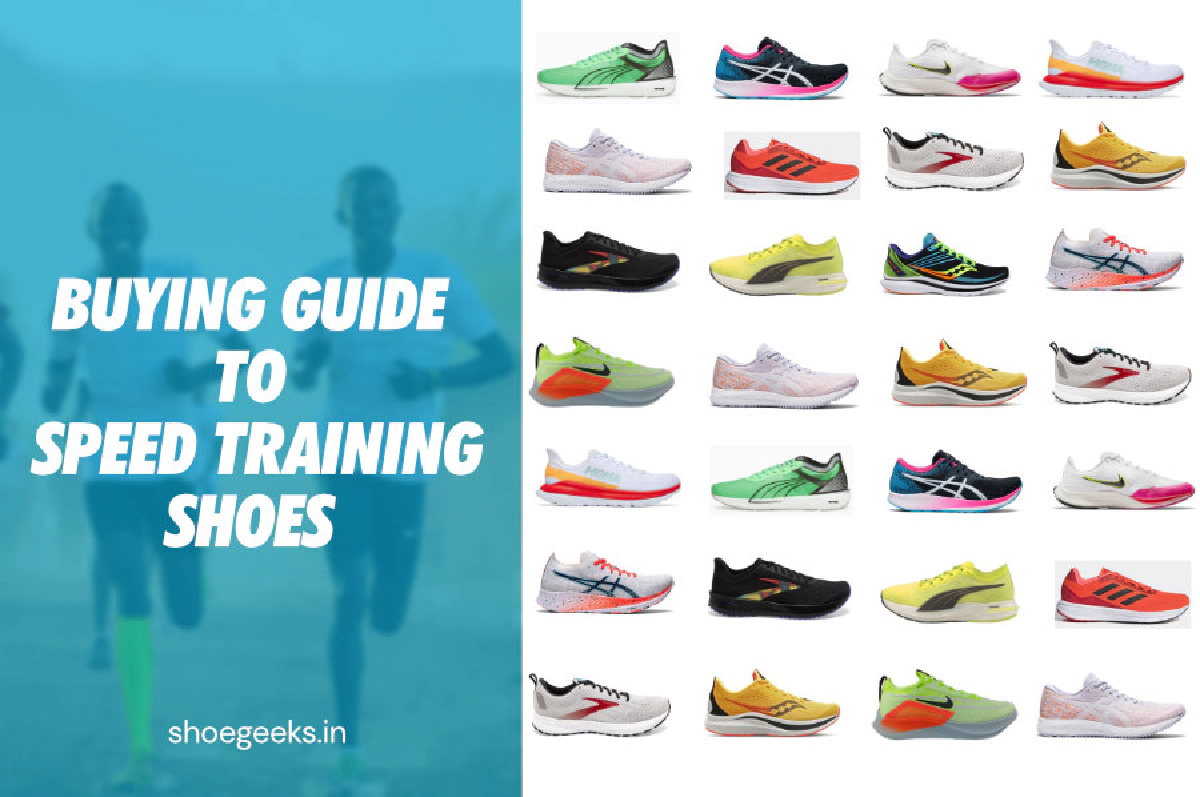
This article was first published on shoegeeks.in
Gone are the days, when you used one “do-it-all” shoe. Times have changed and so have running shoes, and so have runners and their training needs. Runners are spoilt for choice now, with ever improving and innovative shoes. Shoe brands are selling a varieties of shoes built for purpose, by tweaking the weight, midsole formulation, stack height, upper construction, etc,. In this gamut of running shoes, how does one opt for a shoe for ones’ speed training needs? Want to know how, read on!
Significance of Speed training has increased even among amateur distance runners, as they realize the importance of building speed. Speed training allows for neuromuscular adaptations for developing speed, and running mechanics, which are key to cracking those race day PRs across all distances.
Speed training is an umbrella term, and there are many different types of workouts that runners can do, based on the type of race disance they are training for (5K, 10K, Half, or Marathon), and the goal they have (skill development, maximal speed development, lactate threshold development, speed endurance etc.,). Here are a few common workouts that can be classified as speed training.
While any running shoe could potentially be used for the above speed training workouts, some work more effectively than the others. So what makes the speed training shoes unique?
Shoe brands have been tweaking shoe configurations with different types of foams, midsole inserts, geometries, and other technology advances to make them more effective for speed training. Almost every brand has shoes marketed as speed training shoes in their catalogue.
With plenty of choices out there, the question is how to find the best speed running shoes for your training needs? This article aims to demystify speed training shoes, how to select them, and our top picks for speed training shoes.
Here is a brief summary of how various features of running shoes, make them a better choice for speed training.
| Feature | How it helps speed? |
| Shoe Weight | The lighter the shoe, the better it is for speed training. Shoes ideally weighing under 230 gms (for UK 8) are the best suited. |
| Midsole | Midsole material is the most important factor when choosing a speed shoe. Midsole with good bounce (springboard effect), and those that are responsive are the ideal ones. PEBAX and supercritical foams like Nitro, Fuelcell, DNAFlash are to look for. |
| Upper & lacing | A minimal upper may not be comfortable for longer runs, but a good choice for speed training, as it often fits better. A minimal upper also helps bring down the weight of the shoe. |
| Toe Spring | Toe spring is the curve on top of the shoes, above your metatarsals. It defines the rocker effect that certain shoes provide. Rockers provide better midfoot to forefoot transition and help the forward propulsion. |
| Stack height | Stack height is also a crucial factor. Conventional wisdom was lower the stack better it is, due to better ground feel, greater stability, and lower weight. But lower stack height may not be the best choice for longer tempo runs. Modern midsole materials are light enough, even at a higher stack. So light and yet higher stacks are the best choices for those longer tempo runs. |
| Carbon Fibre Plates | Carbon plated shoes have carbon-infused in the midsole. Similarly a fibre plate can also be infused in the midsole for some speed trainers. They provide extra stability at the ankle joint, reducing the load on the calves, and keeping the toes straight. Along with softer midsoles, they provide an extra bounce. |
| No Frills Shoes | Race Trainers | |
| What? | These have only one goal, that is to keep the weight low. These shoes often miss features such as carbon or fibre plates to keep them affordable. | These are designed as training companions to racing shoes such as Nike VaporFly. They have most features that racing shoes have such as higher stacks, and carbon or fibre plates. |
| Best for | Sprints/Strides, Speed Intervals, VO2 Max Intervals, Tempo Intervals, Races up to 10K | Tempo Intervals, Tempo Runs, Races up to half-marathons |
| Ground Feel | Often are low to the ground, have excellent stability | Often have higher stacks, and may not be as stable |
| Features |
|
|
Here are few of the popular speed training shoes across the brands that we have curated.
Compiled by Team GeeksOnFeet for the love of running!